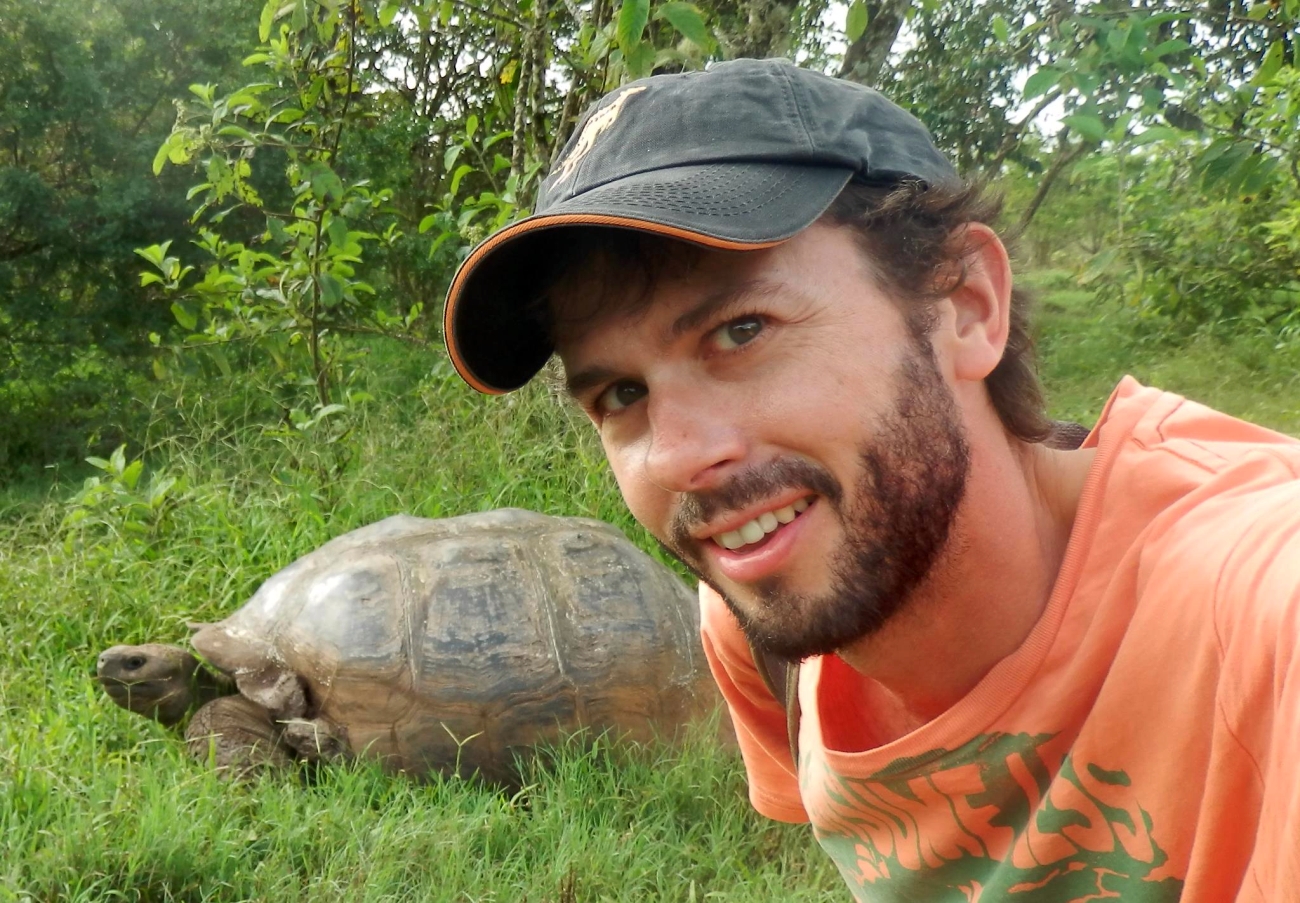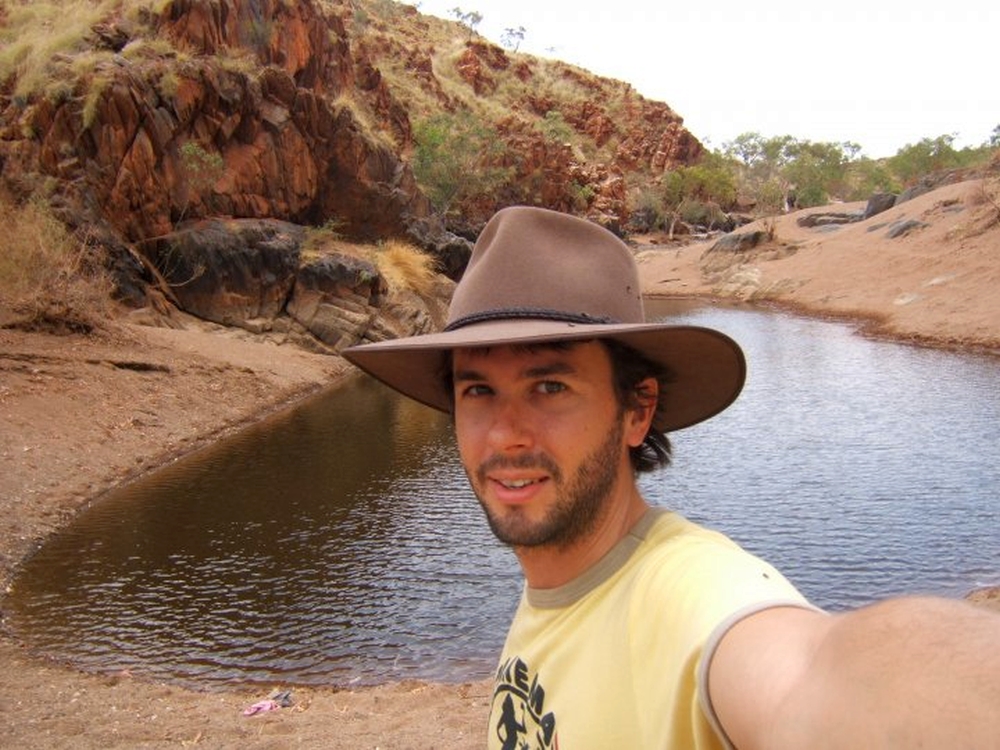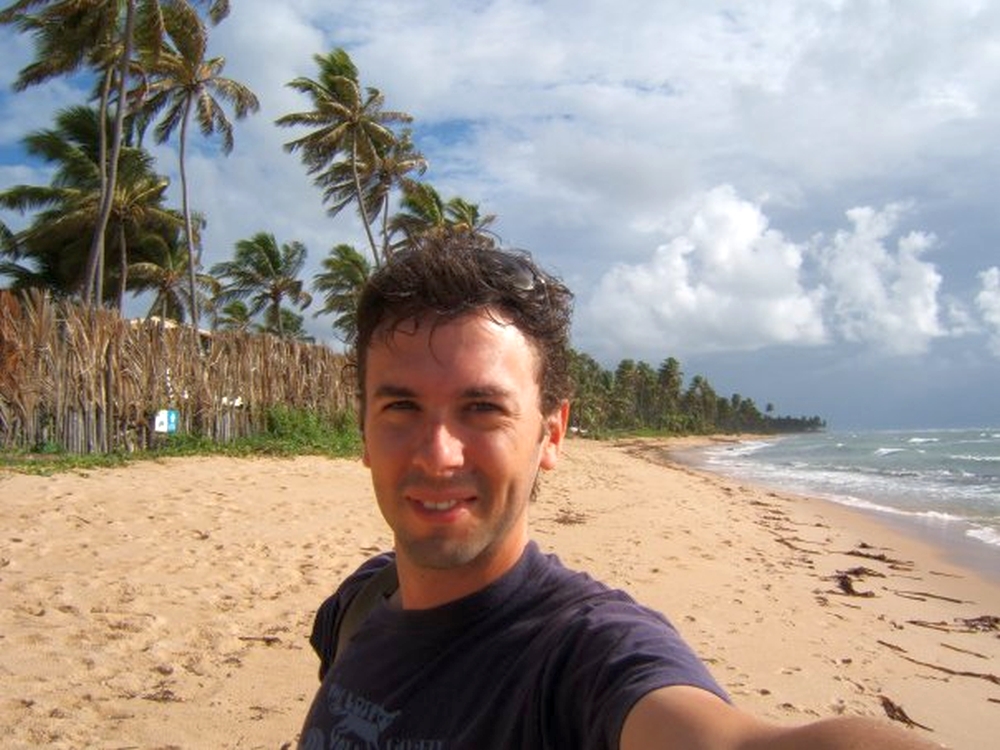What’s It Like To Write For Lonely Planet? 10 Questions For A Lonely Planet Author

I met Lonely Planet author and all-round model traveler Regis St. Louis earlier this year during a trip to Quebec City, where I learned that he has enviously been living his life traveling the world and working as a full-time author for Lonely Planet, authoring and co-authoring some of their biggest titles including Lonely Planet Brazil, Lonely Planet Portugal, Lonely Planet Rio de Janeiro, Lonely Planet Barcelona, Lonely Planet Papua New Guinea & Solomon Islands, Lonely Planet South America on a Shoestring, Lonely Planet Montreal & Quebec City and Lonely Planet New York City . . . phew.
Currently based in Brooklyn, New York, Regis divides his time between his young family and writing for Lonely Planet. But back in the halcyon days of the ’90s (1999 to be exact), a young Regis St. Louis took a life-altering trip to the Andes, where upon returning home to the U.S., he promptly sold all of his belongings and set off on a classic journey across the whole of Latin America. Since then, he’s traveled extensively on six continents, visiting everywhere from the rainforests of the Amazon to the snowy heights of the Caucasus.
Of course, during the entire time we were together, I peppered him with a myriad of annoying questions about what it was like to work for Lonely Planet. In an effort to supplement my own short memory span, as well as to share with the world his responses, I decided to follow up with some written questions, including questions about his view on the future of guidebooks in general, and how he influenced Anthony Bourdain’s trip to Rio.
1) How many and which guidebooks have you worked on for Lonely Planet?
I’ve been writing for Lonely Planet pretty much full-time for the last 11 years, so I’ve had the chance to cover a wide range of countries over the years, including Spain, Brazil, Russia, Australia, Vietnam, Japan, Nicaragua and Estonia among other places. In all I’ve contributed to around 50 guidebooks or so. I tend to work on a fair number of city guides. My favorite places of the moment are Barcelona, Rio de Janeiro and Lisbon.
2) How did you become a Lonely Planet author given that it’s one of the best jobs in the world? I imagine it’s not exactly an easy job to get?
I’ve always loved languages (I studied Russian in university and later learned French, Spanish and Portuguese), and I had always aspired to make my living as a writer, but I really didn’t have a career plan after college. I ended up moving out West and working odd jobs just to save enough money to go traveling. After a big trip around Latin America, I started writing essays about travel and publishing them in obscure online publications.
Then by chance I saw that Lonely Planet was recruiting for new writers — this was back in 2002. So I sent them some of my work and was invited into the pool of authors (around 350 or so authors at the time). It was a bit of luck really. They happened to be looking for folks with Latin American experience who could speak Spanish and perhaps Portuguese. This didn’t mean much until I received my first commission a few months later. I was invited to cover part of Brazil for the South America on a Shoestring guide. After that, I continued to develop relationships with different editors and managed to get assignments covering lots of places.
3) What’s the best part about being a Lonely Planet guidebook author? What’s the worst part?
I love the diverse skills that are required for this job. You need language skills, research skills (sleuthing out the great new restaurants, bars and hidden attractions) and an outgoing personality to talk to many different types of people and gain insight into the culture. The deeper you go, the richer your experience will be and the more able you will be to share that with readers.
On the other hand, you also need to be able to rabbit yourself away for weeks on end to write the damn thing after the trip is over. You might have several hundreds of pages of text to update and you won’t have very much time to do it. During these tight deadlines, you can forget about having a social life or even leaving the house for days on end. Spending two months chained to a desk can be a very isolating experience.

4) Given the amount of travel you’ve done, I imagine you’d seen and done it all. If you could name one, what was your best experience while traveling that encapsulated everything you love about it?
I certainly haven’t seen it all. In fact, the more I travel, the more I realize how vast and unknowable this great world is. I think that’s part of the appeal of travel really: the mystery of what lies out there, and going out and discovering.
Speaking of which, I was fortunate enough to work on the last Papua New Guinea guide. One of my most memorable experiences was toward the end of my trip when I was trying to go by boat between two regions in Oro Province (I was running out of time and trying to get to Tufi). I arrived at the dock in Oro Bay and it seemed pretty hopeless. There were no boats and lots of people waiting around. (In Papua New Guinea, you do a lot of waiting around for public transport, and sometimes you get stranded in the middle of nowhere.)
So, I made friends with a man who helped get me on his own village boat when it finally arrived. But it was getting dark, and it was clear that Tufi was much farther than I had imagined, so I wouldn’t be getting there that night. We had a few scary breakdowns on rough seas. These were little “banana boats” mind you — long canoes with outboard motors that got tossed about like toy boats on the dangerous South Pacific swells. In fact, the previous author of my region had actually capsized in rough seas, lost his laptop, camera, notes and all his belongings, but he survived, swimming to shore along with his fellow passengers, but I digress . . .
So we finally made it across the bay to calmer waters and made stops at tiny villages to drop off the passengers along the way. The boatman said I could stay with his brother’s family in Tumari, then the following day, they’d take me on to Tufi. It turned out to be a magical stay. Tumari is a sweet little village, and they rarely see foreigners there. I got such a warm welcome. The boatman’s family cooked a lovely meal for me, provided a bed and we sat on the porch of their little bungalow and watched the stars appear above the palms, gentle waves lapping at the shore of this remote corner of the world.
The next morning, one of the village kids took me around, showed me the thatched-roof open-sided building where he went to school, and introduced me to everyone in the village. I heard lots of stories from folks who wanted to share a bit of their lives with me. I was quite moved at how kind and open everyone was. Later that day, the boatmen took me around to Tufi — which is a spectacular setting of rainforest lining these long fjord-like rias — but I was already missing Tumari.
I suppose some of my most memorable experiences have been when unexpected things happen — when things go wrong — and then you are open to these extraordinary experiences.
5) What misconceptions do you think people have about what it’s like to be a guidebook writer?
Most people don’t realize the grind of the daily routine of guidebook writing. On the road, I’m up early, planning my route for the day, then visit 30 or 40 places in a day — hotels, restaurants, tour outfits, bus depots, etc . . . Looking at hotel room after hotel room and studying restaurant menus quickly becomes utterly mind-numbing. Then, back home, you become a hermit. It’s easy to get burned out.
Travelers on the road tell me I’ve got the best job in the world, but I often envy them. They arrive in a destination, get to decide how they’ll spend their days and have absolute freedom to lie on the beach, climb a mountain or just spend their day however they wish. I have quite a packed schedule covering all the places of interest in the guide, plus researching new spots, so I don’t have much time for beach days or leisurely side trips. Of course, it’s when they go back to the day job at the office that I no longer want to trade places.
6) It’s important for guidebooks to be unique and list ideas, restaurants and other attractions that differentiate them from other guidebooks. How do you go about discovering places an ordinary traveler would never find?
Talking to locals is key — hence language skills are essential when writing a good guidebook to a foreign country. Thumbing through local publications to see what other folks are covering, whether it’s In Your Pocket city guides in Eastern Europe or Veja magazine in Brazil, is very helpful as well.
It’s also important just to go out and walk the streets. When I’m in Rio, I walk every block of Ipanema, Leblon, Jardim Botanico, Centro and Copacabana, plus the majority of streets in other key areas. I always stumble across places that I hadn’t heard about — sometimes because they just opened. Since Lonely Planet is paying me to be in the country, I make sure that I spend a lot of time out exploring and hopefully making worthwhile discoveries.

7) Are you really unbiased? I heard guidebook authors take freebies all the time for mentions in their books. is that true? Don’t people see you taking notes while you’re having a meal or looking around a hotel and become suspicious?
It’s a cardinal rule at Lonely Planet that we don’t take freebies in exchange for positive coverage, and it’s imbedded in every author’s moral compass that if they want to continue writing for Lonely Planet, they can’t take “comps” while on assignment. It’s true that I’m often taking notes everywhere. In restaurants I snap photos of menus and scribble away as the food arrives. I try to be somewhat discreet, but at the end of the day I have to get the work done, so I don’t really pay attention to whether folks are suspicious of me or not.
8) I heard you indirectly influenced Anthony Bourdain’s travels in Brazil. Can you tell us how you did that?
The last time I was in Rio, I met a woman who runs a guesthouse in Santa Teresa and is also a filmmaker. She told me she had used one of my earlier editions to Rio when she first moved here and discovered in the book a local guide I included who led favela tours (a man by the name of Paulo Amendoim, a lovely fellow).
She liked Paulo so much in fact, that she introduced him to Anthony Bourdain when he came down to shoot one of his No Reservations episodes in Rio (she worked on that particular episode). In the filming, Paulo showed Bourdain around the Rocinha favela, and of course, he never would have met him if I hadn’t featured him in the Rio guide.
9) Lonely Planet was recently sold to an american tobacco billionaire, and for a while there, it seemed that Frommer’s would no longer be publishing their written guidebooks (although this has since changed). What do you see for the future of a company like lonely planet whose main business has historically been the paper guidebook, and what do you see as the future for guidebooks in general?
I see the future of the guidebook as not just text on a printed page, but sound, video, images and music. Publishing companies must create a more interactive experience, and one that taps into not only an author’s expertise, but a wealth of other resources: downloadable walking tours, music from top singers of the region, photo spreads from the big contemporary artists of the moment.
Many authors are well-placed to provide these kinds of features. I also see a need for more specialized, curated content. If a traveler wants to check out street art in Lisbon, or go on a bohemian pub crawl through obscure outer neighborhoods in Barcelona, he or she should be able to access that. Currently, when I research a destination, I have so much more material than I can fit in a book. It would be great if there was a place for all these ships left at sea.
10) When writing for guidebooks, one has to be concise, clear, informative and interesting, all within certain writing boundaries for that specific guidebook publisher. What writing tips would you give young authors in general about the craft of writing?
Guidebook writing has to be a balance between being informative and descriptive. If you get too carried away with one or the other, it becomes either incredibly dull or overly flowery and just as equally unreadable.
When I’m writing I always try to imagine I’m penning a letter to a friend, conveying the essential information without being dry or pretentious. Keeping things concise is also essential (I’m better at this when it comes to writing guidebooks, less so when answering 10 questions for bloggers).
I’d suggest following the old inverted pyramid rule of journalism: tell the most important bits first, save the odd facts toward the end. Keep in mind that you’re writing these days for a global audience, so avoid using Americanisms or British/Aussie slang and overly ornate phrasings. You also need to learn how to edit your own work and to be able to cut it down to the essentials. Don’t rely on adjectives, and make every word count.
By Matt Stabile

ABOUT THE AUTHOR
 Matt Stabile is the founder and Editor-in-Chief of TheExpeditioner.com. You can read his writings, watch his travel videos, purchase the book he co-edited or contact him via email at any time at TheExpeditioner.com. (@TheExpeditioner)
Matt Stabile is the founder and Editor-in-Chief of TheExpeditioner.com. You can read his writings, watch his travel videos, purchase the book he co-edited or contact him via email at any time at TheExpeditioner.com. (@TheExpeditioner)
